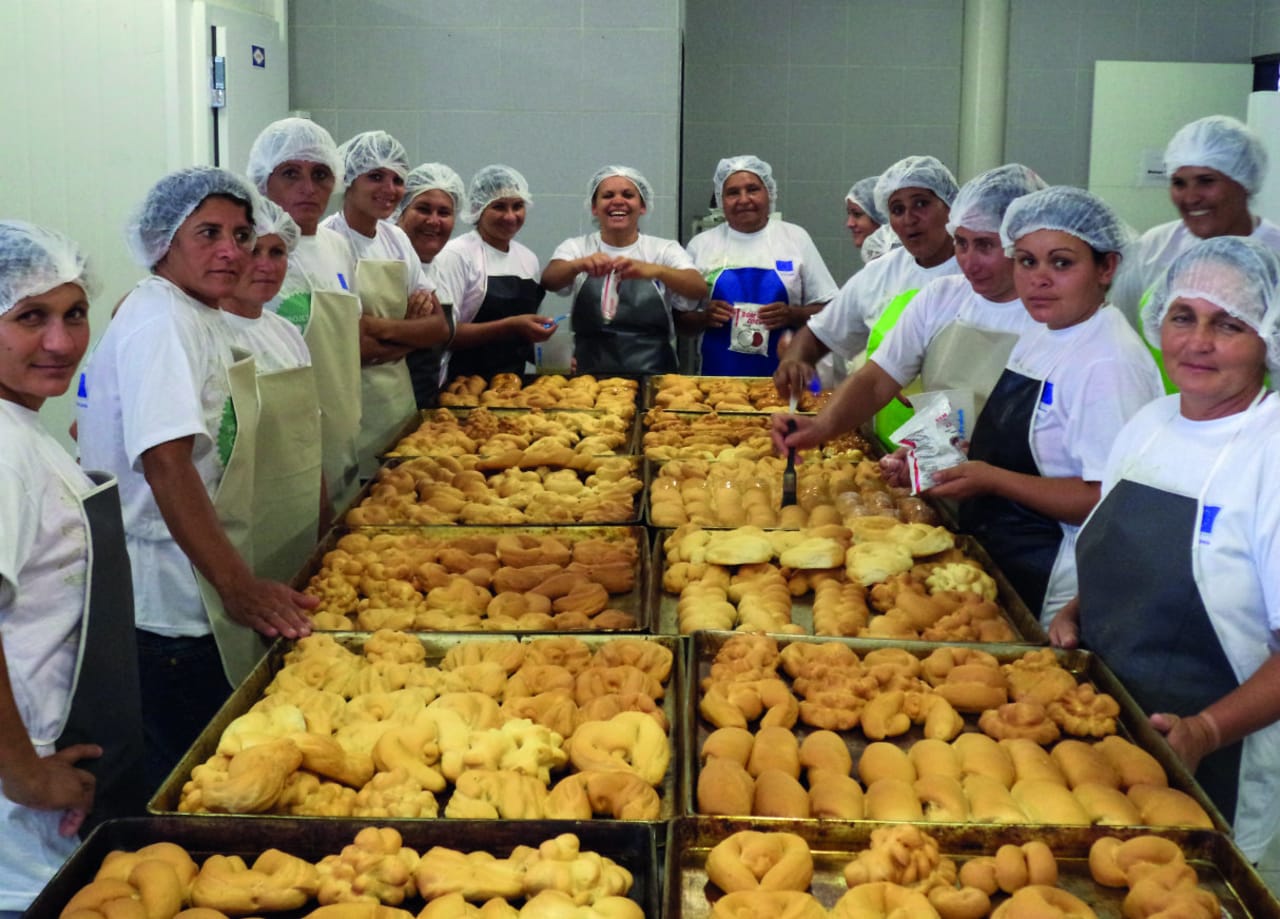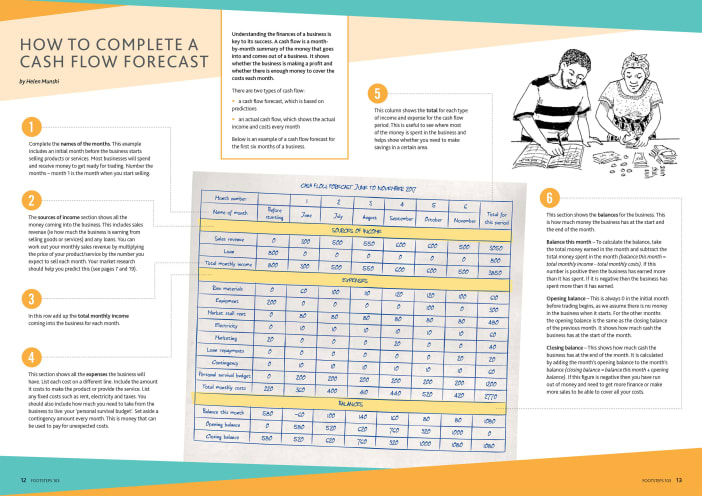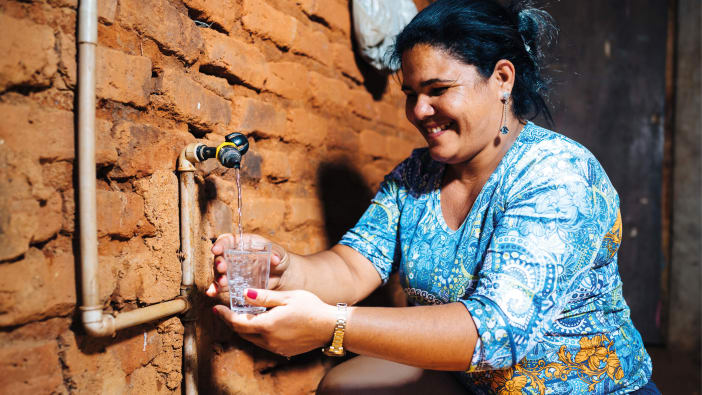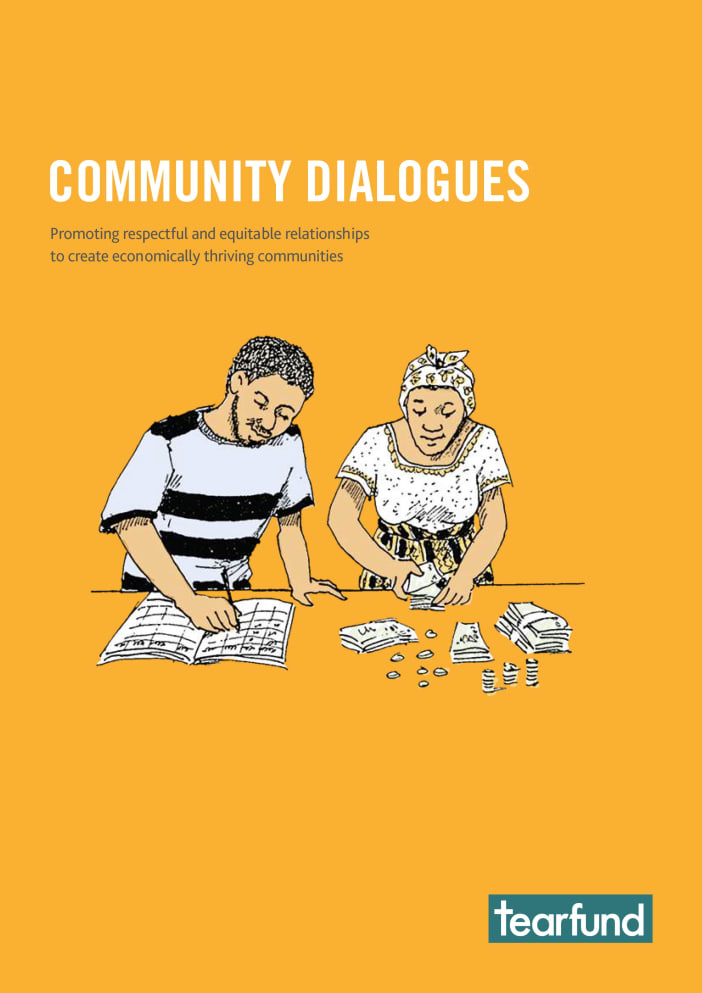Life can be hard in Brazil’s semi-arid region, especially for women. Lack of access to water and land means farming is often a struggle. Many men and young people migrate to towns and cities to look for work. The culture is dominated by men, and women traditionally have few opportunities for earning an income or having a voice.
Tearfund’s partner Diaconia set up a three-year project to help the women in this area achieve economic success and become more empowered socially and politically.
Uniting and empowering women
Diaconia mobilised the women to come together in women’s community groups. Project staff trained the women in new agro-ecological techniques (sustainable and environmentally friendly ways of farming). They also taught them how to add value to their produce by making fruit pulps, sweets, cakes and bread. They helped the women set up community businesses together, such as bakeries. They also organised exchange visits between different communities so the women could learn from one another’s successes and failures.
Diaconia staff gave the women thorough training in business management, production and marketing. They helped the women access the markets where they could sell their products most profitably, including agro-ecological fairs. They also helped link the women to two government policies: the Food Acquisition Programme and the National School Feeding Programme. Through these programmes, the government purchases food from family farms for use in state-run hospitals, care homes and schools.
Through the training, Diaconia helped the women learn more about their rights and encouraged them to get involved in public decision-making. Women began joining local community associations and workers’ unions, often taking leadership positions. In many cases, this improved the organisations’ performance.
Relationships transformed
The project has seen a remarkable improvement in women’s empowerment. Their income has increased significantly, and some families have been able to buy items such as fridges and motorbikes. A few have been able to pay for their children to access higher education.
The fact that women are now contributing to the household income has changed relationships within families. As the men saw the benefits to their family, they began to support their wives in their new ventures. While the women were on exchange visits learning from other communities, their husbands took over their daily chores around the home – despite some reluctance at first.
All this did not come without a struggle. ‘At first it was very difficult because there was a lot of machismo,’ says Maria Dilvânia Fernandes. ‘Husbands did not want their wives to attend the women’s groups or training courses. But we did not give up. Those who could participate in the meetings demanded freedom and equality for the others.’
Case study compiled using information kindly provided by Diaconia.
Web: www.diaconia.org.br
Email: [email protected]
Creamy papaya cake
Ingredients
- 1 cup of sugar
- 1 cup of oil
- 2 cups of wheat flour
- 1 cup of papaya juice
- ½ cup of condensed milk
- 3 eggs
- 1 tablespoon of baking powder
Method
In a bowl, mix all the ingredients together with a spoon. Put the dough in a greased and floured tin and bake for 40 minutes at 180 degrees until golden.
Sesame biscuits
Ingredients
- 1 cup of roasted and ground sesame
- 1 cup of sugar
- 250g of cornflour
- 250g of wheat flour
- 100g of margarine
- 2 teaspoons of baking powder
- 3 eggs
- 1 teaspoon of salt
- sesame seeds for decoration
Method
Beat the margarine and sugar until creamy. Add the eggs, sesame, cornflour, baking powder, salt and wheat flour. Mix to form a firm dough. Roll out the dough and cut into squares, sprinkling with sesame seeds to decorate. Bake at a moderate temperature. Makes 500g of biscuits.









